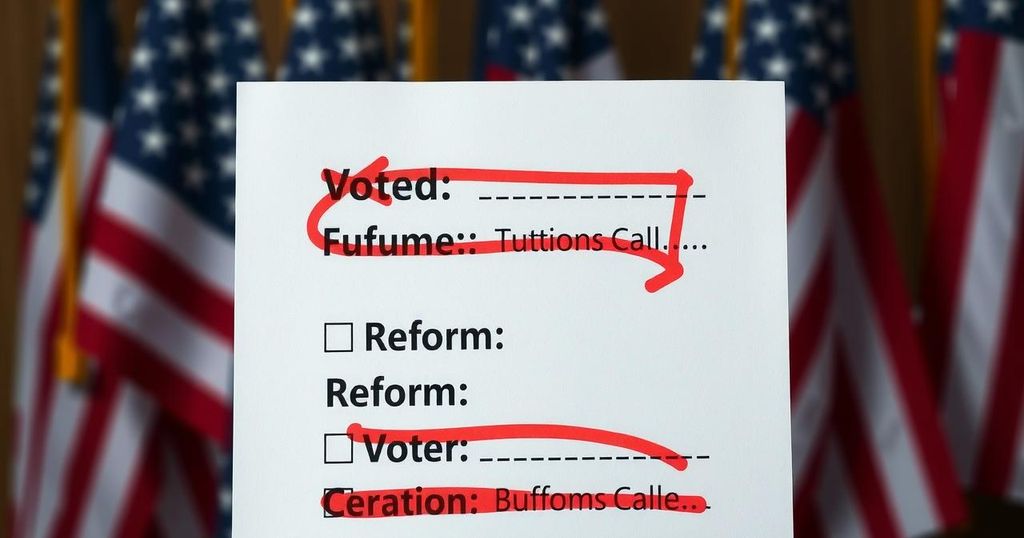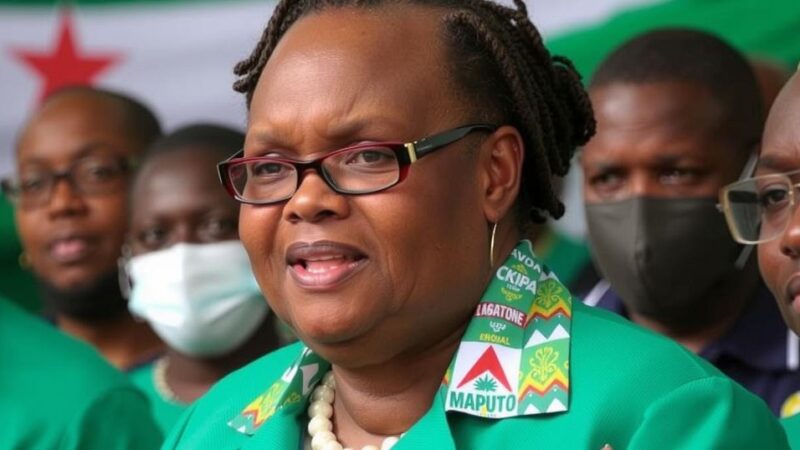Voters across several U.S. states have rejected significant electoral reforms, including ranked choice voting and open primaries, despite a $100 million funding effort by advocates. Prominent states where these measures failed include Arizona, Nevada, and Montana. The election reform movement faces an uphill battle as supporters reassess strategies and aim to build grassroots support before proposing changes.
Voters across the United States have decidedly rejected significant election reform initiatives despite a hefty investment exceeding $100 million by advocates aimed at promoting changes such as ranked choice voting and open primaries. As a result of this broad failure, activists are reassessing their strategies, acknowledging an underestimation of voter readiness for such reforms. Proposals in various states, including Arizona, Montana, and South Dakota, faced rejection, a trend which reveals a surprising resistance even in states historically viewed as swing or supportive grounds for reform efforts.
Among the reform efforts, proponents envisioned a wide embrace of open primaries that would allow voters to select candidates from all parties on a singular ballot, as well as ranked choice voting, which enables citizens to rank candidates in order of preference. Regrettably, these initiatives collectively faltered in their attempts to gain voter approval, showcasing entrenched preferences for traditional voting methods. According to John Opdycke, president of Open Primaries, the disappointing outcomes suggest that advocates might not yet have adequately prepared the electorate for these changes.
Highlighting the mixed sentiments, the reforms saw earlier positive momentum, particularly following Alaska’s successful 2020 approval of open primaries and ranked choice voting. However, those favorable conditions did not persist in Nevada, which reversed its earlier approval for similar measures. Furthermore, preliminary results in Alaska indicated a close failure of an effort aimed at repealing the more progressive voting systems, suggesting ongoing contention surrounding these electoral changes.
The drive for election reform in the United States emerged as a response to perceived issues within the current electoral process, particularly the divisive nature of partisan primaries and the challenges in attaining majority support for candidates. Advocates promote alternative voting methods such as ranked choice voting as a means to enhance voter choice and reduce instances of vote-splitting in elections. Nonetheless, recent elections revealed a paradox where, despite a significant financial push for reforms, voters displayed reluctance to adopt such changes, indicating a complex landscape in the fight for electoral modernization.
In conclusion, the overwhelming rejection of numerous ballot measures aimed at reforming voting practices across the United States signals a pronounced challenge for advocates of ranked choice voting and open primaries. These recent outcomes compel reform proponents to rethink their strategies and engage voters more deeply before undertaking major electoral changes. It is evident that while there is a recognized dissatisfaction with the existing political system, many voters remain conservative in their electoral preferences, underscoring the complexity of driving meaningful reform in the electoral landscape.
Original Source: www.independent.co.uk







